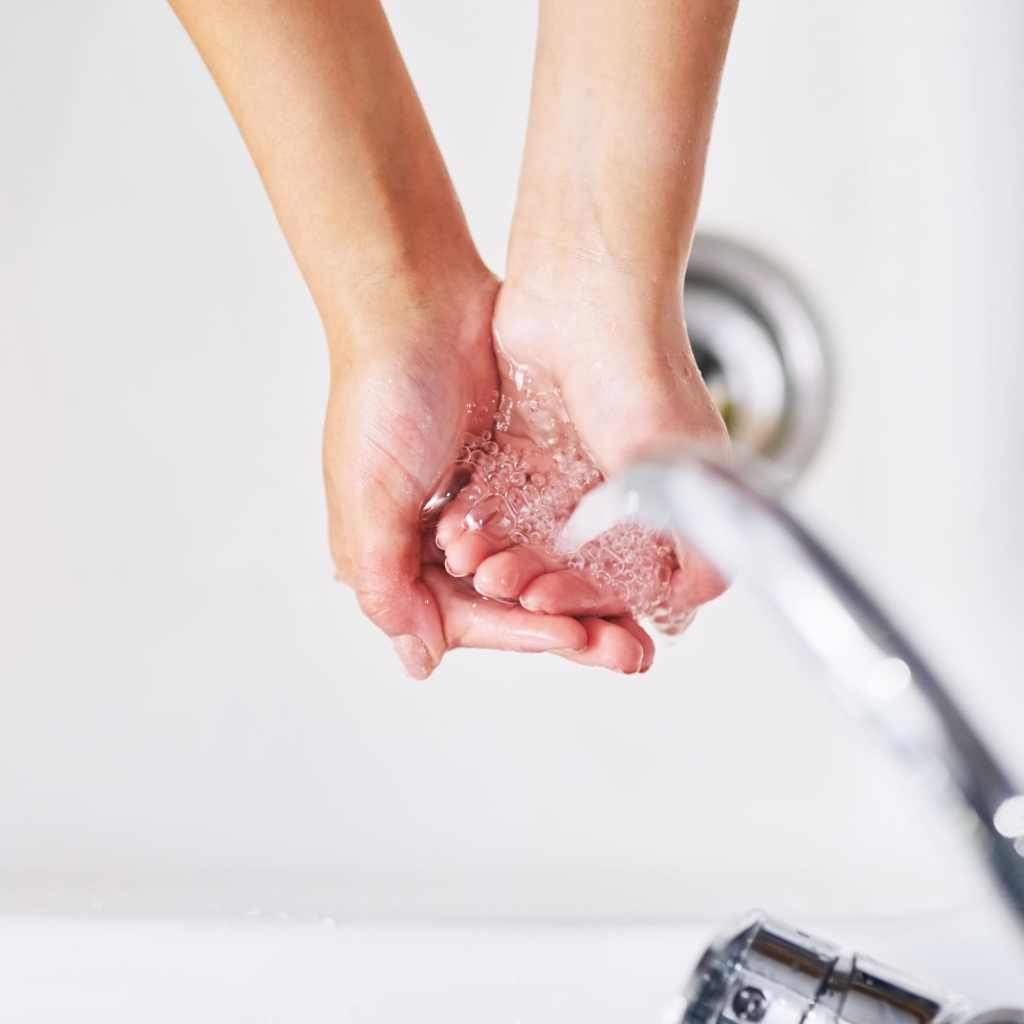With the coronavirus outbreak spreading around the world, many of us are concerned with how to defend ourselves against this illness, particularly if we’re traveling. Fortunately, doctors say that one of the best defenses against getting sick is much simpler than you think: just wash your hands.
“Next to getting a vaccine, which doesn’t yet exist for the coronavirus, hand washing is the most important way to avoid contracting a respiratory virus like coronavirus or influenza,” Sandra Kesh, MD, deputy medical director and infectious disease specialist at Westmed Medical Group in Purchase, NY, told POPSUGAR. “Good hand hygiene is critical because the main mode of transmission of most germs (including viruses) is hand to mouth, eye, or nose contact. Studies have shown that we touch our faces over 20 times per hour. That’s a lot of exposure.”
So, how should you wash your hands to prevent spreading or contracting coronavirus? The same way you always would: frequently and thoroughly, with soap and water. Keep reading for some best practices.
Related: The Tokyo Olympics Will Take Place Exactly One Year Later, Starting on July 23, 2021
How Often Should You Wash Your Hands?
Dare we say, all the time? Ashish Sharma, MD, a board-certified internal medicine physician at Yuma Regional Medical Center in Arizona, shared a list of scenarios in which you should wash your hands. (But when in doubt, do it!)
- Each time you blow your nose
- Each time you sneeze into your elbow or hand
- Before touching your hand to your face
- Before and after cooking food
- Before and after eating food
- Each time you come within six feet of a sick person
- Before and after administering care to someone who’s sick
- After touching or feeding an animal
- After cleaning or coming in contact with animal waste (cat litter, etc.)
- After touching waste or garbage
- After changing a baby’s diaper
- After using the toilet
Some of these should seem intuitive, but it’s a good reminder of just how often – particularly during a cold-and-flu-and-coronavirus season – to be washing those hands of yours.
Related: Very Few Babies and Kids Are Getting Sick From the Coronavirus, but Why?
How to Wash Your Hands Properly
Need a little hygiene 101? Dr. Kesh breaks down the steps.
- Lather with soap and water: “Wet your hands with clean, running water (warm or cold), and apply a quarter-sized amount of soap. The temperature of the water does not affect the cleanliness of your hands, so no need to scald yourself,” Dr. Kesh said. She’s right: even though we’ve been taught from an early age to use superhot water, science doesn’t back up this method for germicide.
- Scrub for 20 seconds: “Rub your hands together to create a good lather, and scrub under your nails, between your fingers, and the backs of your hands. You should wash for at least 20 seconds – humming the ‘Happy Birthday’ song from start to end twice usually does it,” she explained.
- Rinse: “Rinse your hands well under running water,” Dr. Kesh said.
- Avoid recontamination: “When finished, turn off the faucet with a paper towel, and dry your hands using a clean towel or air dry them,” she said.
That recontamination point is important. “If you are in a public bathroom, make sure you do not touch any surface, and use a clean paper towel to open the door and close the faucet handle,” Dr. Sharma said. Additionally, Dr. Sharma recommends that you use a paper towel instead of a hand dryer in public places: “Drying hands with a paper towel is preferred, rather than hand dryers, as paper towels effectively clean the germs from the wet hand compared to the hand dryer.” (Research backs this up.)
What About Hand Sanitizer?
Both doctors explained that hand sanitizer is OK only if soap isn’t available. They both emphasized that the sanitizer should be at least 60 percent alcohol. Rub the gel (or spray) all over your hands until they’re completely dry. “This should also take about 20 seconds,” Dr. Kesh told POPSUGAR. “Remember, two ‘Happy Birthday’ songs!”

